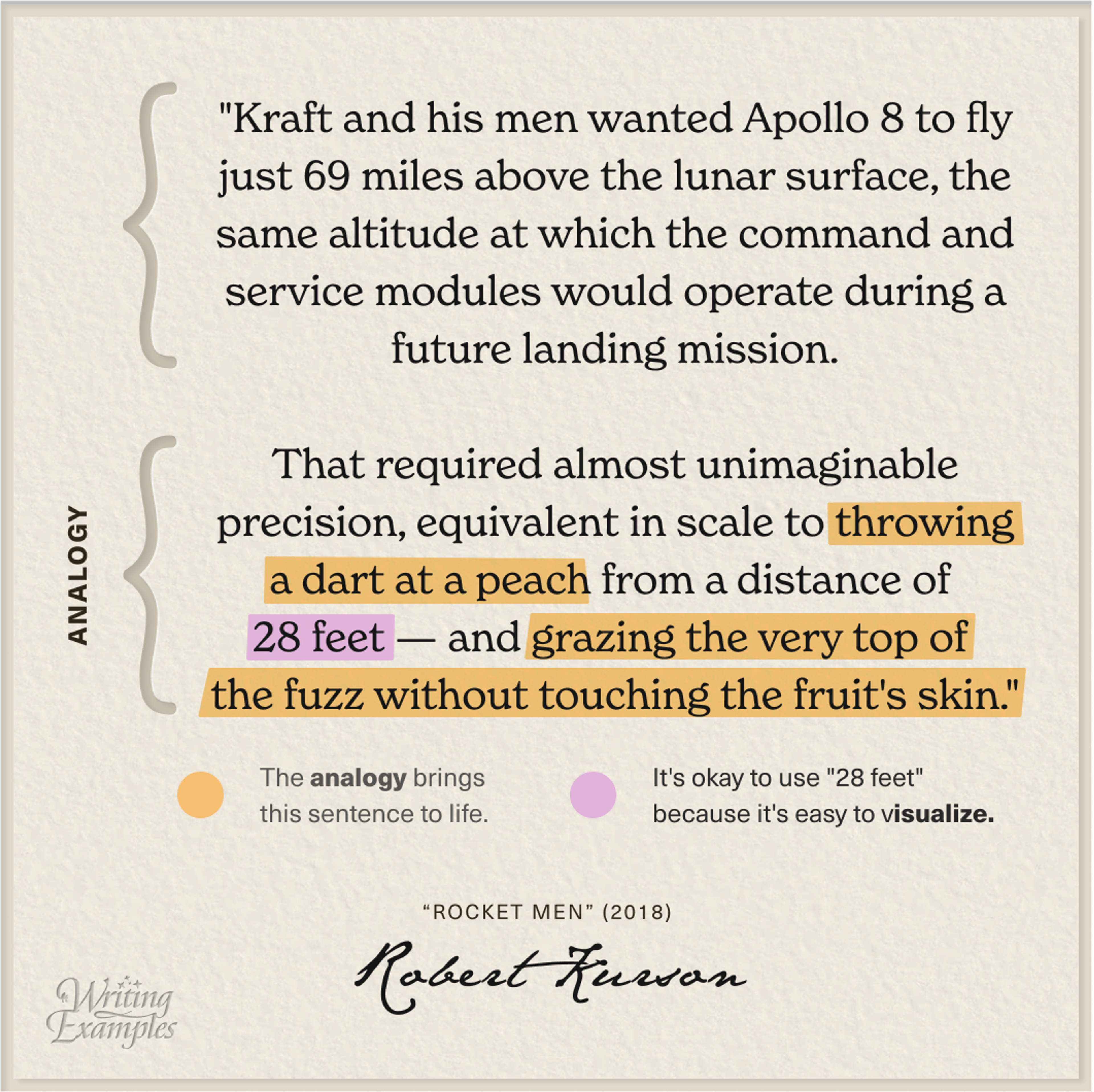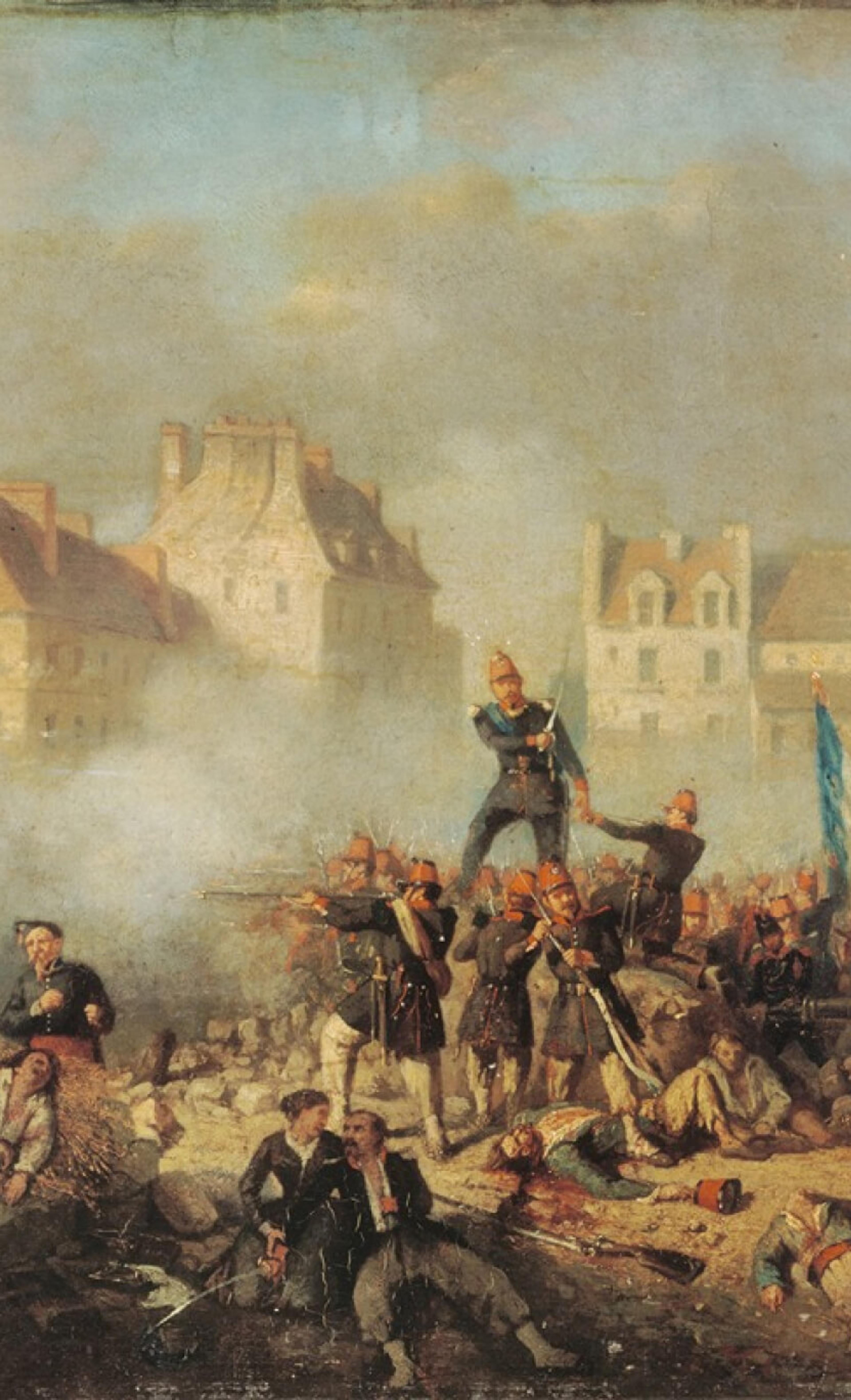
he goal of this paragraph is to show how precise the Apollo 8 mission needed to be. The year was 1968, and no man had ever reached the Moon. And yet, this crew orbited the Moon ten times, without landing, before returning to earth.
You know that feeling of awe when you’re staring into a starry sky, and marveling at the immensity of it all? That’s the emotion Kurson wants you to feel after reading this paragraph.
He’s writing for a general audience, not scientists. In order to do that, he uses a dart-and-peach analogy that everyday readers can understand. The first half of the paragraph sets up the analogy in the second half.
And the analogy is alive because it’s so distinctive. You've never imagined someone throwing a dart to skim the fuzz of a peach from 28 feet away, and the ease of picturing the dart grazing only the fuzz of a peach helps you instantly appreciate the difficulty of what these daring astronauts were trying to accomplish.
This paragraph buzzes, because instead of using abstract numbers to show the scale of space, Kurson uses a visual analogy. Numbers may be more precise, but people can’t wrap their heads around huge figures. The sentence wouldn’t have had the same ring to it if Kurson had written: “The men were 240,000 miles away from earth, and they needed to fly within four miles of the moon's surface."
To give your readers a visceral sense of scale, ditch the precision of numbers and look for a majestic analogy instead. And if you’re going to use a number, make sure it’s one the reader can visualize, like “28 feet.”
Read More
Write like the Greats
New Writing Examples, right in your inbox.
“Beautiful, playful, and high-quality. Kudos.”
Clayton
from Missouri, USA



